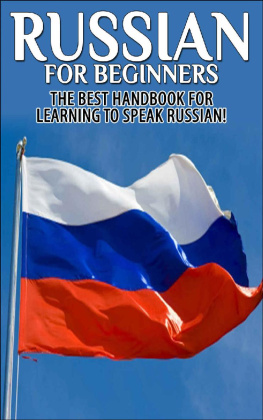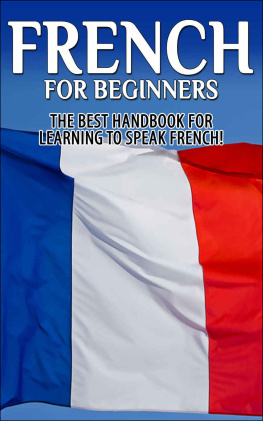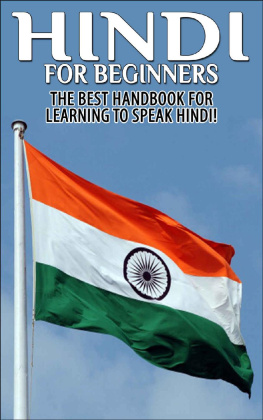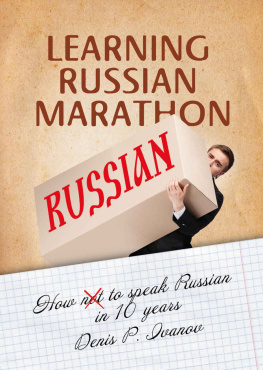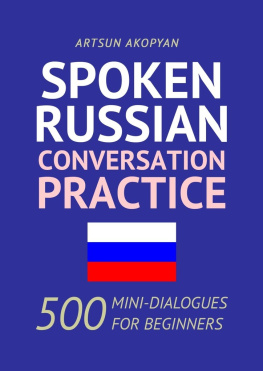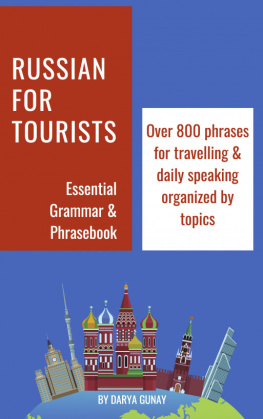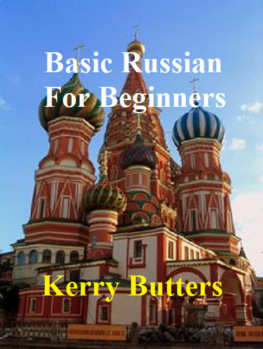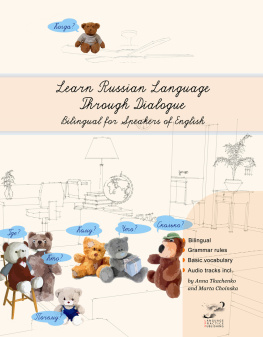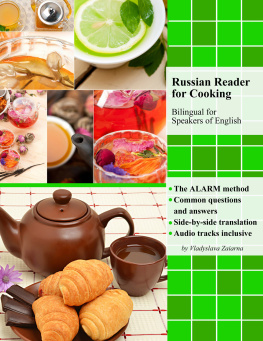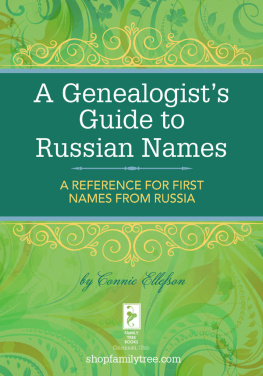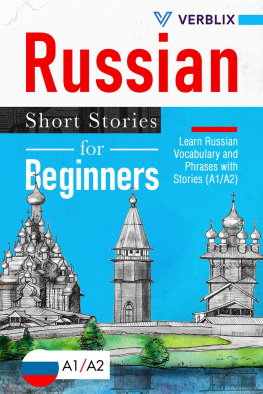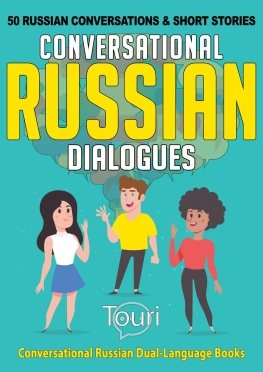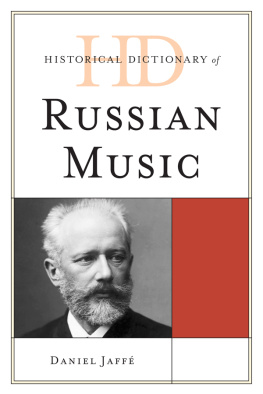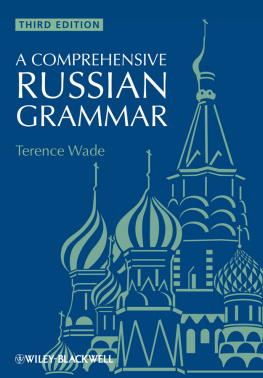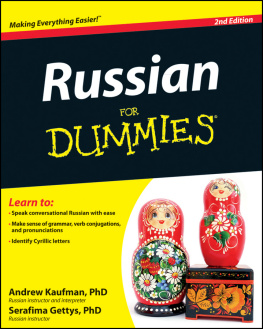Preev-yet! Or should I say, Hello? I want to thank you and congratulate you for purchasing the book, Russian for Beginners: The Best Handbook for Learning to Speak Russian! This book contains proven steps and strategies on how to learn the Russian Language in a fast and easy way! From the Russian Alphabet, to phrases and sentences that you can use for your everyday life, if ever youre planning to visit Russia, or have a Russian friend with you around, this book will be handy and helpful for you. Start reading this book now and be fluent in Russian in no time! Thanks again for downloading this book, I hope you enjoy it!
Chapter 1: Getting to Know the Russian Language
Leo Tolstoy and his War and Peace , along with Anton Chekov, Fiodor Dostoyevsky and Alexander Pushkin gave the Russian language more familiar to the rest of the world. Learning Russian is a good way to start appreciating the culture. It also helps when trying to make friends with Russian native speakers or doing business with them. It also helps to know the language when travelling, migrating or working in Russia. Or, it may just be a good way to read Russian novels in their original languages.
Introduction to the Language The Russian language is among the most widely spoken languages in Europe. It is part of the Slavic language group of the Indo-European family of languages. The Slavic language group is divided into the West, East and South Slavic language. The West Slavic division includes Polish, Slovak, Czech and Sorbian languages. The South Slavic division includes Croatian, Bulgarian, Serbia, Slovenian and Macedonian languages. The East Slavic division includes the Russian language, as well as Belorussian and Ukrainian.
The 5 official UN languages include the Russian language. This language also ranks among the worlds major languages, alongside English, Chinese, Hindi and Spanish. About 142million people in the Russian Federation use Russian as their native language. The use of the language goes beyond the country. Approximately, there are about 255-285 million speakers of the Russian language all over the world. It is one of the key languages in a lot of countries that formerly belonged to what used to be USSR, such as in Georgia, Armenia, Byelorussia, Azerbaijan, Kyrgyzstan, Moldova, Lithuania, Latvia, Estoni, Kazakhstan, Uzbekistan, Tajikistan, Ukraine, and Turkmenistan.
Across Central Asia and Caucasus, Russian remains to be the key language. The language used to be taught in several countries in Eastern Europe as part of the Warsaw Pact include the countries Hungary, Czechoslovakia, German Democratic Republic, Bulgaria, Romania and Poland. How to Learn the Russian language Learning the Russian language requires hard work. Vocabulary, pronunciation, writing and grammar are the cornerstones in studying the language. Vocabulary is learning the basic words and what they mean. This is the first element towards successful learning of any language.
Experts estimate that learning about 3000 Russian words are enough for basic social interactions. But even with this amount of words, it is still not enough. The point is to keep enriching your vocabulary. The best way to start is by using bilingual dictionaries. Pronunciation is the next essential factor in learning the language. By getting familiar with how words are pronounced, it becomes easier to interact face-to-face.
You understand what others are saying, and you can also make yourself be understood. Pronunciation is best practiced by listening to audio materials on learning the language, as well as getting exposed to native speakers through actual conversations or through movies, TV, radio or videos in Russian. Grammar helps in smooth, fluent expression in Russian. Beginners are expected to speak in halting, 1-2 word sentences when conversing in Russian. But this method is very limiting. By learning grammar rules, you can explain yourself more and have deeper and linger conversations.
Writing is a good way to start practicing using the language. This is often much easier because you have the time to construct sentences, organize thoughts and analyze them. Is it difficult to learn the Russian language? This language has a reputation as one of the most difficult languages to learn. It is more difficult for English speakers to learn Russian, compared to the other languages in Western Europe. However, Russian is still easer to learn compared to Arabic, Chinese, and Japanese. Most people are intimidated by the Russian alphabet.
It is composed of Cyrillic characters that are very different from the letters of the English alphabet. The Russian alphabet was created in the 9 th century, by 2 missionaries who came from Greece. These missionaries were brothers named Methodius and Cyril. Hence, the alphabet was largely based on Greek. Despite the intimidating characters, several letters are written and pronounced pretty much the same way as in English. It is also easy to learn.
On the average, mastery of the entire Russian alphabet can be achieved in as little as 1 week. Also, Russian words are spelled in a more straightforward manner compared to English. Words are easy to recognize once you learn to see past its Cyrillic disguise. For example: cosmos school atmosphere student fact Hundreds of modern Russian words are also directly derived from English, making things much easier to learn. computer Internet website provider chat Learning Russian grammar may also prove to be a bit difficult. There are lots of endings, vowel alternations, suffixes and prefixes that need to be studied.
Also, there are different inflections that are widely used to differentiate grammatical meanings. A lot of Russian words change with their number, function, gender, etc. You also have to learn the intricacies of moods and tenses. In addition, you have to be familiar with the aspect of Russian verbs. There are 2 major aspects, which are represented by separate infinitives. There is the imperfective, which indicates that an action is continuing.
There is also the perfective, which indicates that an action is to be completed or already completed. Word stress may also prove to be a source of difficulty in learning the Russian language. There are no defined rules when it comes to stress, as it is free-form. This would require you to learn the accent of each Russian word separately.
Chapter 2: The Russian Alphabet and Russian Numbers
The Russian Alphabet is called Cyrillic. There are 33 letters in the Cyrillic Alphabet which is comprised of 11 vowels together with 20 consonants and two other letters that are called signs of pronunciation.
Vowels Here are the Cyrillic Vowels and how to pronounce them: A a, like a in the word can ya, like ya in the word yak E ye, like ye in the word yeah e, like e in the word egg or z in zoo yoo, like in the word youth - yo, like in the word yoddle oy/ay/ai (mainly used for diphthongs), toy,, hay, neigh, etc. I, like insect el, like bell Consonants Meanwhile, here are the consonants and how they should be pronounced. Take note that sometimes, theyre pronounced differently for the different kinds of words: Oo o/a like bore, or bare t, like take, top, tip m, like in the word man like kangaroo, or kitten like h in hi or hello Yy like oo in root, foot, or boot Cc like s in saw, set, sin Pp like r in roar. It has to be pronounced thicker , though. Sometimes, its called the rolled R H like n in nut or no Ee like e in tell, yes, or let B like v in vine, or vet like b in back, bat, or bet like f in faith, fat, or face like p in pot like L in life, love, or look like d in dark, dog, or death like g in gone, gun, or go like ch in church or chips/ could also be ts in sits or hits like s in measure, pleasure, or leisure like o in wonder like sh in shut/ when the other variation is used, you have to say the word with your tongue at the roof of your mouth. And here are the two pronunciation symbols: This is used to make previous letters soft.

